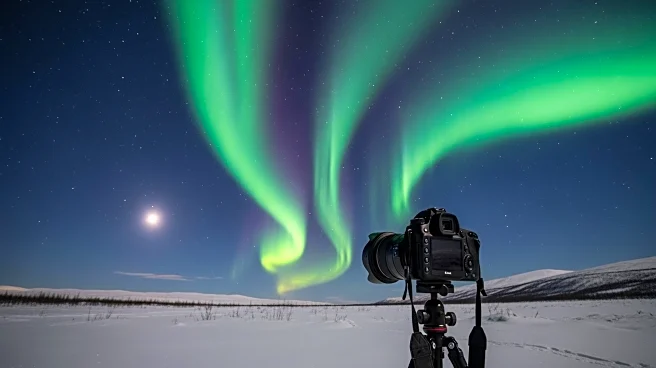Rapid Read • 8 min read
The Krasheninnikov Volcano in Kamchatka, Russia, has erupted for the first time in 600 years, potentially triggered by a massive earthquake that struck the region last week. According to Olga Girina, head of the Kamchatka Volcanic Eruption Response Team, the eruption may be connected to the earthquake that occurred on Wednesday, which also led to tsunami warnings across regions as distant as French Polynesia and Chile. The Kamchatka branch of Russia's ministry for emergency services reported an ash plume rising up to 6,000 meters following the eruption. The volcano, standing at 1,856 meters, has been assigned an orange aviation code, indicating a heightened risk to aircraft.
AD
The eruption of the Krasheninnikov Volcano is significant due to its historical rarity, marking the first confirmed eruption in six centuries. This geological event highlights the interconnectedness of seismic activities and volcanic eruptions, potentially offering insights into the dynamics of Earth's crust in the region. The ash plume poses a risk to aviation, necessitating heightened alertness for aircraft in the vicinity. Additionally, the event underscores the importance of monitoring volcanic activity, especially in areas prone to seismic disturbances, to mitigate risks to human safety and infrastructure.
Authorities are likely to continue monitoring the volcanic activity closely, assessing the potential for further eruptions or seismic events. The orange aviation code suggests ongoing vigilance for aircraft, and emergency services may issue additional advisories as needed. Scientists may conduct further studies to understand the relationship between the earthquake and the volcanic eruption, potentially refining predictive models for future geological events.
The eruption may prompt discussions on the preparedness of regions near active volcanoes and seismic zones. It could lead to increased investment in monitoring technologies and emergency response strategies to better anticipate and manage such natural disasters. The event also serves as a reminder of the unpredictable nature of Earth's geological processes and the need for international cooperation in sharing data and resources for disaster management.
AD
More Stories You Might Enjoy











